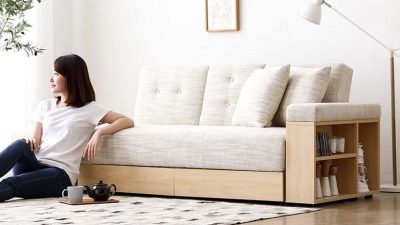
Why Summer Nights Feel So Hot
You’d think once the sun dips, the heat would too. But nope—your bedroom can still feel like a sauna, especially in a Virginia summer. All that warmth from the day hides in your walls and roof, then sneaks out at night. Add humidity, and suddenly even a thin sheet feels like a heavy blanket. If you’re over the nightly toss-and-turn routine, a few simple changes—and, when needed, a quick AC repair—can help you get back to sleeping like a champ.
1. Use Cross-Ventilation
Want free air-conditioning from nature? Open windows on opposite sides of your house so air can travel through. If you’ve got two floors, crack the lower windows on the shady side and the upper windows on the warm side—heat rises, after all. Stick a box fan in the hottest upstairs window, facing out, to help push that stuffy air out faster.
2. Switch to Breathable Bedding
Your sheets matter more than you think. Cotton, bamboo, and linen let your skin breathe and whisk away sweat. Synthetics? They just trap heat. Keep it light—try a thin duvet or even just a top sheet—and wash everything weekly. Clean bedding feels cooler and smells better, too.
3. Schedule Your Cooling Checkup or Repair
When your AC’s been going all day and the room’s still not cooling off, that’s your cue to bring in a technician. A proper AC repair can bring back the chill and even save you on energy costs. Common fixes include:
- Cleaning dusty coils and blower parts
- Swapping out clogged filters or worn belts
- Checking refrigerant and thermostat settings
Plenty of local crews offer round-the-clock help, solid warranties, and payment plans—so you can focus on sleeping instead of sweating.
4. Keep the Sun Out
Sunlight is lovely… until it’s cooking your bedroom. Close blinds or draw blackout curtains before midday, especially on windows facing west. Prefer some daylight? Solar shades block the heat but still let light filter in. After sunset, open them to let cooler air in.
5. Cut Heat from Electronics
Small devices can still warm up a room. Unplug chargers, game consoles, and anything you’re not using at night. Do heat-heavy chores like drying laundry or running the dishwasher earlier in the day. Swapping to LED bulbs can also keep the heat down.
6. Hydrate Before Bed
A well-hydrated body cools itself better. Drink some cold water in the evening, but don’t chug right before lights-out unless you love midnight bathroom trips. A handful of salted nuts—almonds, cashews—can help your body hold onto water without making you feel bloated.
7. Use Fans Smartly
A window fan blowing out pushes warm air away, while another fan inside can pull cooler air in. In summer, adjust ceiling fans to rotate counterclockwise so they push the air downward. For a quick hack, put a bowl of ice in front of a fan and enjoy the mini cold front.
8. Cool Your Body, Not Just the Room
Sometimes it’s easier to drop your temp than the whole room’s. Take a cool shower before bed, keep a gel pillow in the freezer, or use the “pulse point” trick—rest an ice pack on your wrists or the back of your neck for a quick cooldown.
9. Upgrade to an Energy-Efficient System
If your air conditioner’s creeping up on 15 years, it’s probably ready for a replacement. Look for a high SEER2 rating, variable-speed compressor, and smart thermostat compatibility. The payoff?
- Quieter nights
- Better humidity control
- Even cooling across the house
Final Thoughts
You don’t need to turn your bedroom into a walk-in freezer to get good summer sleep. Block the heat, keep air moving, stay hydrated, and make sure your AC is pulling its weight. And when it’s not? That’s when AC repair steps in to save the night. Cooler evenings, better mornings—it’s worth it.
FAQs About Staying Cool at Night
How often should I get my AC serviced?
Once a year, ideally before summer hits hard. That way, you catch problems before they ruin your sleep.
Is it okay to keep a fan running through the night?
Nope—but don’t aim it right at your face unless you like waking up with dry eyes and sinuses.
What’s the best temperature for sleeping?
Most people sleep best between 60–67°F. Start around 68°F and see what works for you.
How do blackout curtains help?
They block heat from the sun, so your AC doesn’t have to work as hard when it’s time to sleep.
Can a dehumidifier help me sleep?
Absolutely—less humidity means less sticky skin and faster cooling for your body.
Should I run the AC all day or just at night?
In serious heat, keep a steady setting during the day and cool your bedroom before bed—it’s often more efficient than starting from zero.
Are smart thermostats worth it?
They can be. Features like scheduling and humidity control keep temps more stable and energy bills lower.








